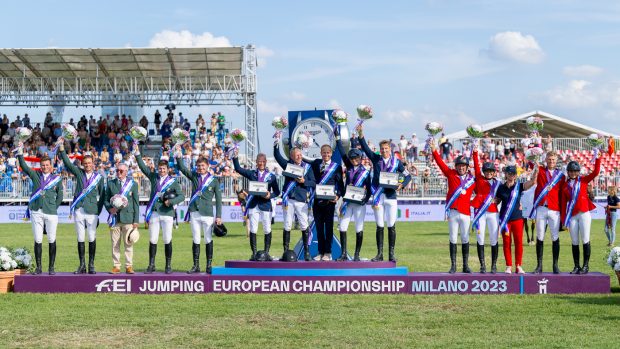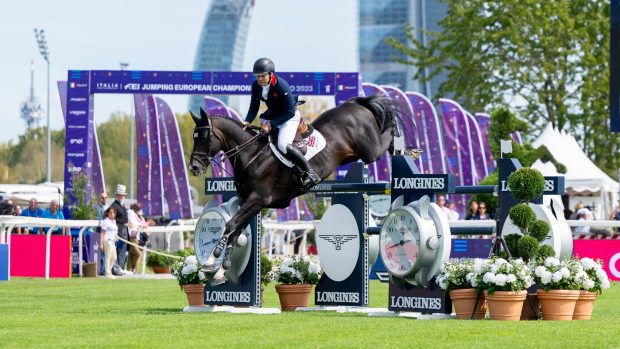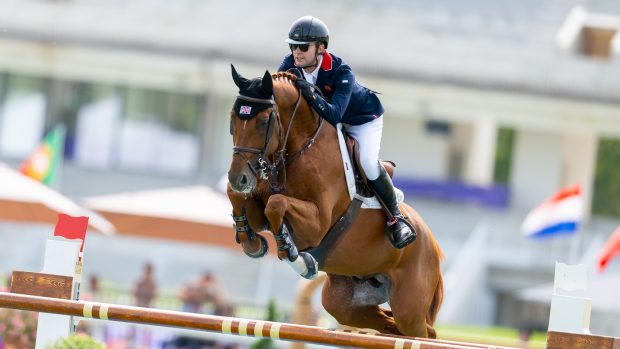The team at Riesenbeck International, the site of this year’s European Showjumping Championships, has moved mountains to make the world-class venue what it is — or a river, at any rate.
At this base of multiple medal-winning showjumper Ludger Beerbaum, which is owned by Baron Philipp Heereman, the 312 permanent stables in six buildings were completed on 23 August, eight days before the first trot-up at the championships.
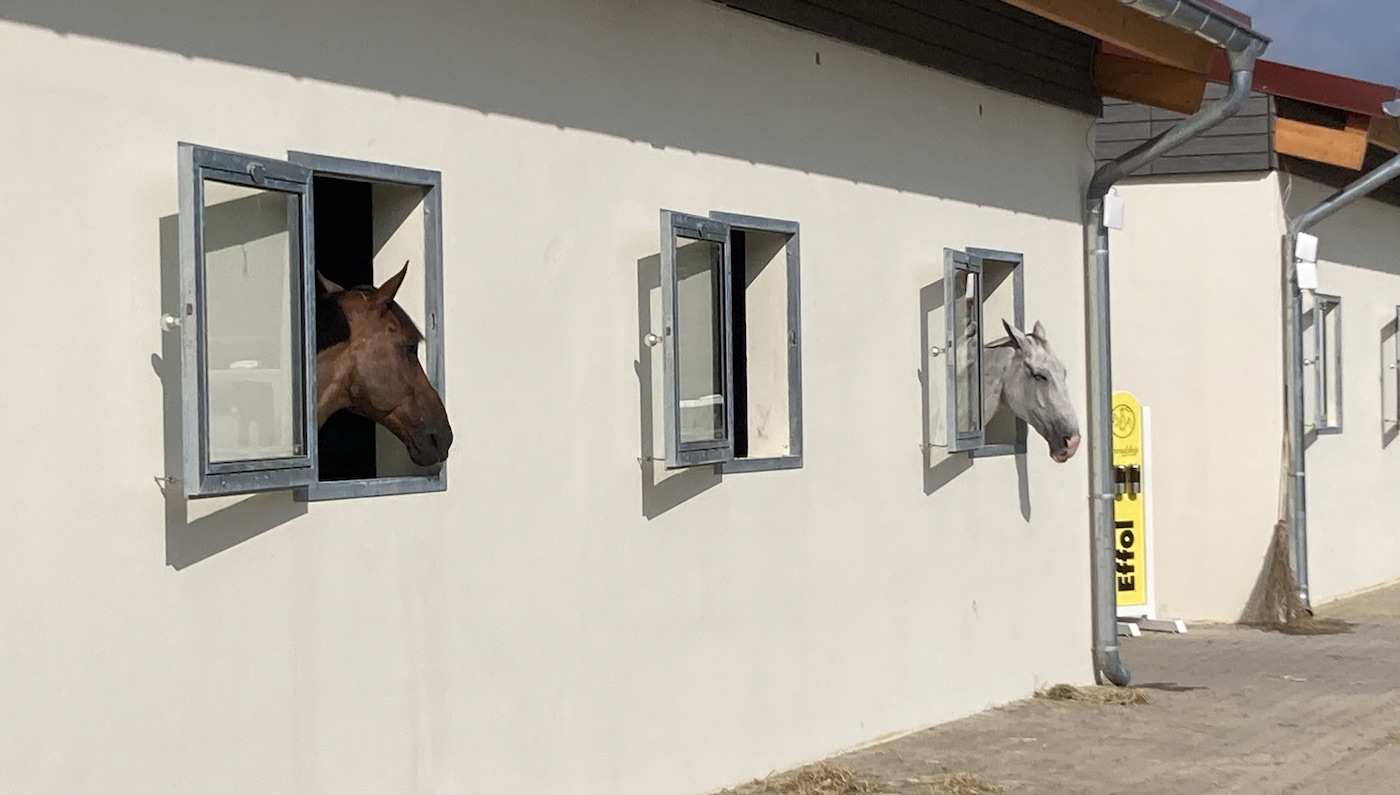
The team at Riesenbeck, in the Westphalian region in northwest Germany, had wanted to build permanent boxes for years; at the first international show there in autumn 2015, horseboxes had to be towed off the grass parking field. At the second show, the following weekend, the lorries had to be towed into their parking places. It rained throughout and the temporary stabling was not ideal.
“We thought we were super smart doing two shows in a row, to use the stable tents twice,” said European Showjumping Championships show director Karsten Lutteken.
“It maybe wasn’t the best idea. The riders said the arena was beautiful, the competing side absolutely perfect but the stables… we had to improve the infrastructure.”
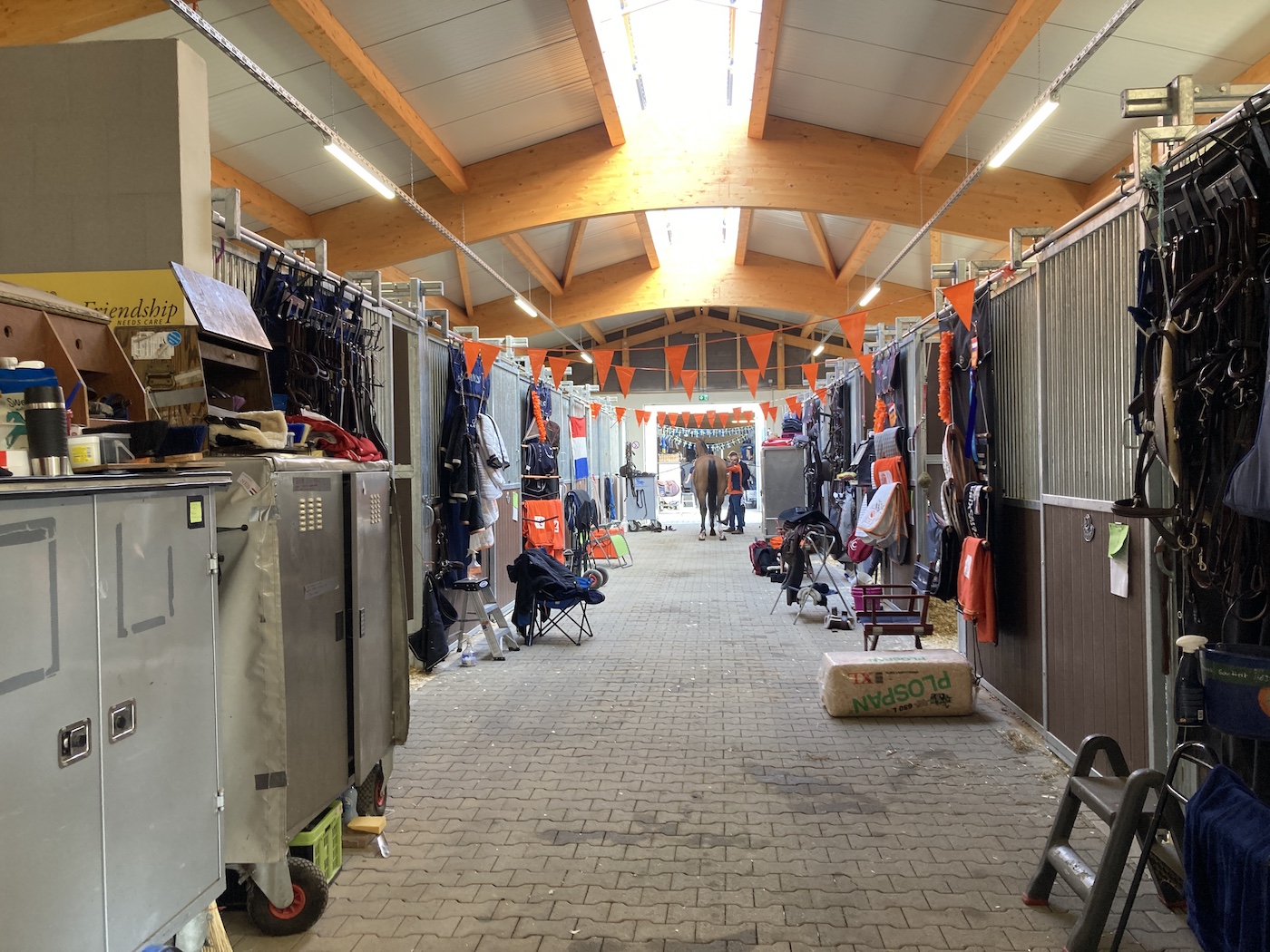
The first step was a hard surface for the car park, which was accomplished, but the permanent stables were a bigger challenge. Close to the proposed building site was a small river, and the land was where excess water could go if the river flooded.
“So it was a no-go for building, but we always had a dream of permanent stables,” Karsten says. “We asked what we could do, and in the end we found a solution.
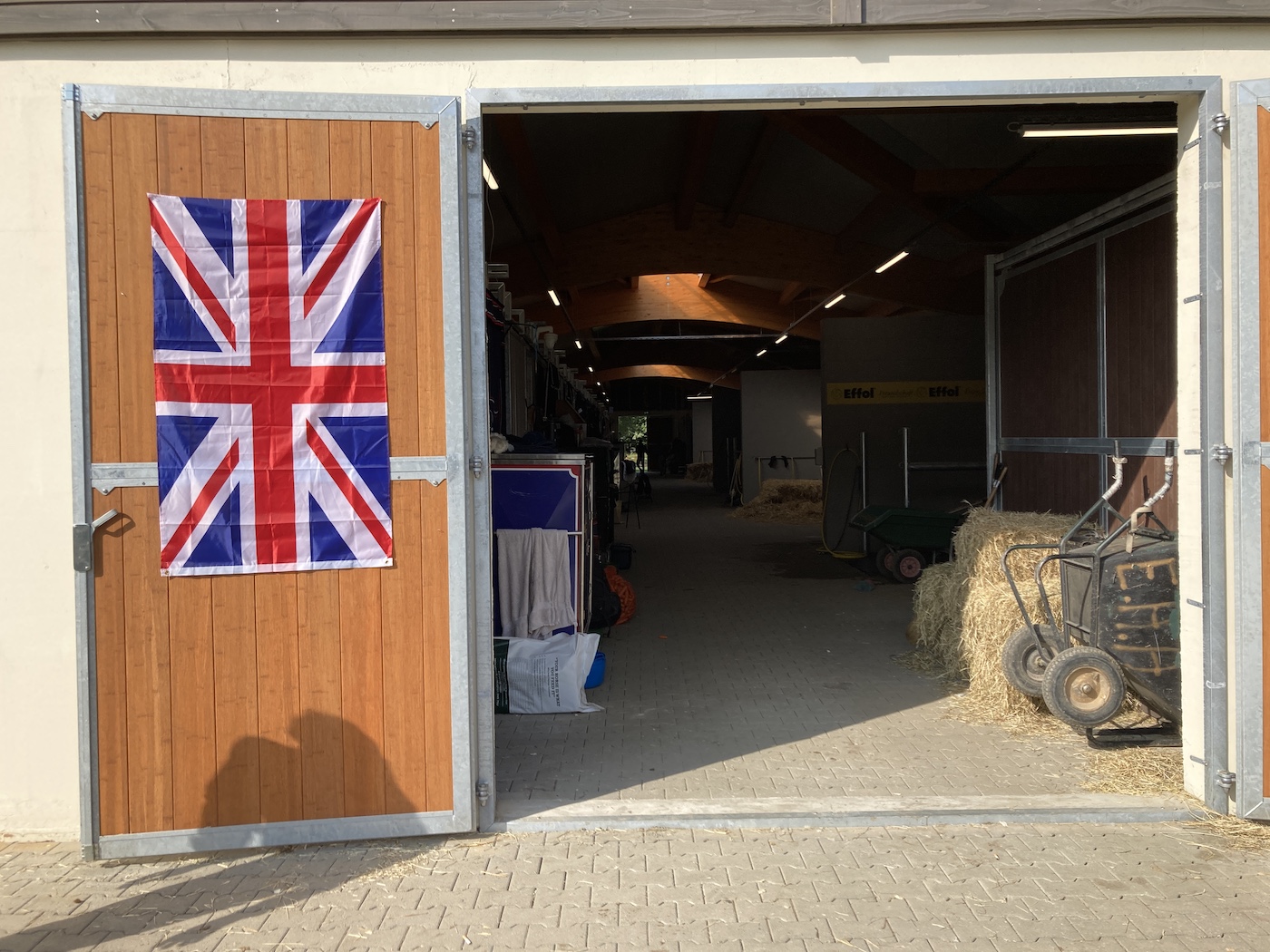
“We were standing on the bridge with [a member of a planning authority] and said ‘What can we do?’ He said ‘Easy, you just move the river’. We thought he was joking.”
He wasn’t, and the river now flows peacefully on its new course, with land around it suitable for being flooded when necessary. The area will be allowed to be natural, while water from the river will be used for maintenance of the grass arena.
The stables, so new they almost squeak, have big windows, plastic walls that are easier to clean and disinfect between shows, airy surroundings with big skylights, no drinkers, to avoid the possibility of contamination from that source, lots of taps and wash bays; all designed after feedback from those who had groomed at shows all over the world.
Elsewhere is the second grass arena, used for the vet checks at these championships and on which riders can practise jumping on grass; it is also used for driving competition.

There’s even a snack bar for the horses by the entrance to the main ring
The main indoor arena is 80x40m, with a 60×25 across the corridor, used as a warm-up for the main ring, and also by the local riding club.
There are also two big outdoor surfaces, one used for the warm-up for this week’s championship and the other for the CSI classes. The aim is to hold 10-12 international events per year, and also “highlights” such as this championship every year.
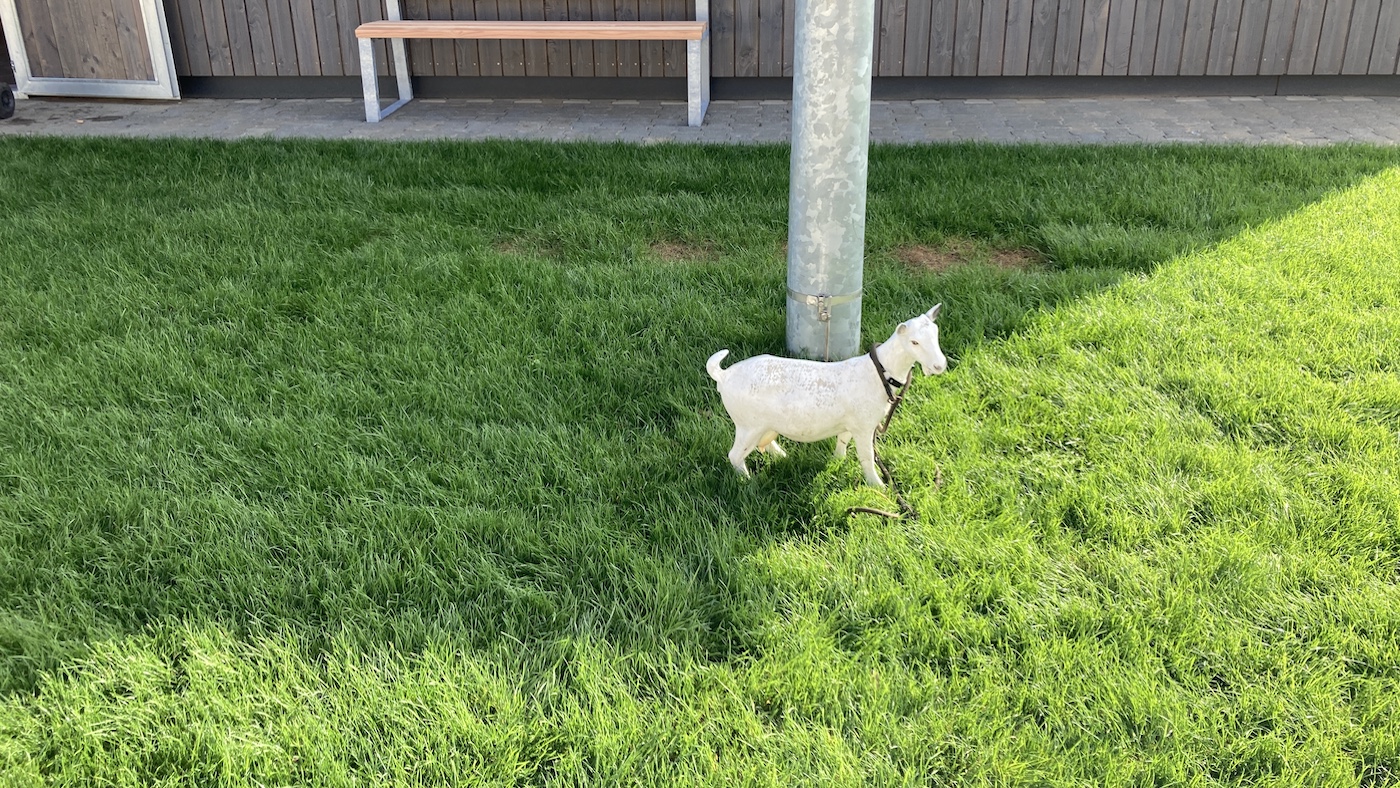
There’s also a model goat tied to a post outside the stables.
“This is the first time I’ve seen that,” Karsten says. “I’m not sure it fits with the concept.”
You might also be interested in:

Riders with combined age of 123 years claim top spots in London GCT CSI5* speed class

Subscribe to Horse & Hound magazine today – and enjoy unlimited website access all year round

Swiss win gold at European team show jumping championships
The Swiss team battles back to win gold at Windsor while Great Britain flounders in sixth
Horse & Hound magazine, out every Thursday, is packed with all the latest news and reports, as well as interviews, specials, nostalgia, vet and training advice. Find how you can enjoy the magazine delivered to your door every week, plus options to upgrade your subscription to access our online service that brings you breaking news and reports as well as other benefits.


